Sixth Annual Community Archives and Heritage Group Conference Report
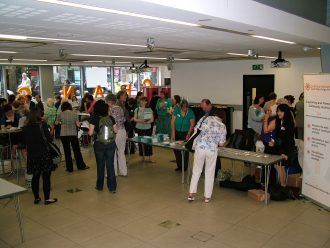

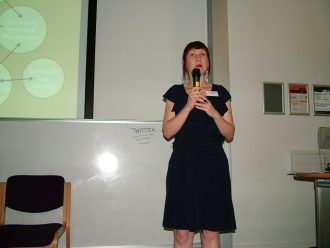
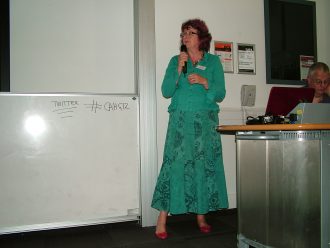
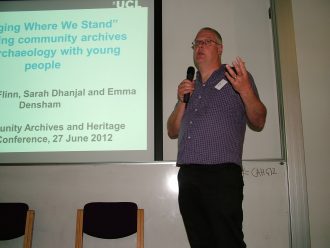
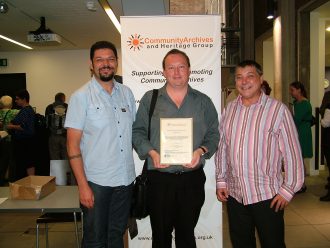
The sixth annual Community Archives and Heritage Group Conference took place on Wednesday 27th June at University College London. The conference was attended by over 130 members representing a wide variety of organisations including county archives, commercial projects and local history societies.
Personal history
In his keynote speech Dr Nick Barratt emphasised the importance of community archives for making a personal connection with history and their use as a tool for community engagement, curriculum enhancement and collaborative working with various groups. Personal history and curriculum engagement were reiterated by Geoff Young in his speech about the Making History project. The brainchild of actor Colin McFarlane, Making History aims to personalise history for a new generation. Pupils involved in the project investigate their family history by talking with family members and are given help to access archival sources online and in person. Students also make a video reflecting on what they have discovered.
Award Winners 2011
Following the AGM, awards were presented to the six 2011 CAHG award winners. The overall winner of Community Archive of the Year, Marden History Group, gave a short presentation on their achievements, including their Community Heritage Centre attached to the local library, designed and staffed by the group’s volunteers. The presentation was complemented by a display over lunch of a bronze-age hoard discovered in the parish.
Show and Tell: Part One
At different points during the afternoon the other winners gave us examples of the variety of work being done by community archives. Volunteers from the Our Oxhey website spoke about their sustainable forum for exploring community memory through oral history. Next, representatives from Pride in our Past spoke about their project which used oral history and memorabilia and artefact collecting to tell the story of Plymouth’s lesbian, gay, bisexual and transgender communities, culminating in an HLF funded exhibition in Plymouth City Museum and Art Gallery. Oughterard Culture and Heritage Centre, who were unable to attend, sent a presentation demonstrating their innovative website, merging contemporary and historic images of their town.
Community Archives in schools
Helen Foster from the Royal Commission on the Ancient and Historical Monuments of Scotland spoke about how the North Edinburgh Social History Group had taken their community archive into local schools. She detailed some of the ways that the archive was linked to the Scottish curriculum and gave inspiration for how other community archives could do the same. Following on from this, Daphne Knott explained how the Herts Memories website has successfully engaged with local secondary schools and the University of Hertfordshire. Helen Tyler gave a personal account of how her engagement with the website had enriched her university course in History.
Show and Tell: Part Two
Bill Walker from Chorley Heritage Centre Support Group began the next set of award winner presentations by speaking about his group’s efforts, towards creating a heritage centre in Chorley’s main street. He also exhorted us to ‘make heritage a habit’. He was followed by students from Trinity Laban Catholic School with a very professional presentation about a drama performance they had created using the recollections of students who had attended innovative therapeutic living environment schools.
Archivists and archeologists
For the final talk, Andrew Flinn and Sarah Dhanjal introduced UCL’s ‘Dig Where We Stand’ project, uniting researchers in archaeology, geography and archives in developing and sustaining broad participation in heritage projects, including enabling students from Hendon School to participate in an archaeological dig in their school grounds. Emma Densham an alumna of the school, shared her positive experiences of the project and gave some valuable recommendations for working with young people.
Throughout the day, speakers focused on the value of using community archives to connect with young people and new groups. As a whole, the conference inspired attendees to be outward-looking and to find ways of taking their community archives to new audiences.

No Comments
Add a comment about this page